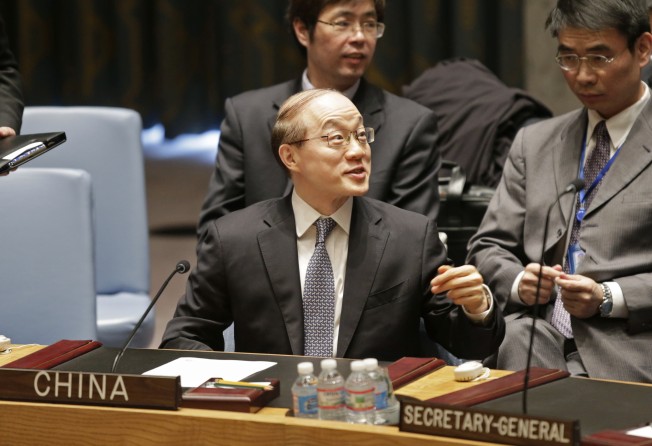China calls for worldwide ‘warning’ to Japan over war tribute visit
China’s UN envoy Liu Jieyi called upon the global community to issue a warning to Japan over Prime Minister Shinzo Abe's visit to the Yasukuni Shrine

China on Wednesday called for a worldwide “warning” to Japan’s Prime Minister Shinzo Abe over his visit to a contested war shrine as it took the mounting feud between the two nations to the United Nations.
China’s UN envoy Liu Jieyi said Abe’s visit to the Yasukuni Shrine last week risked taking Japan down “a very dangerous path”.
The international community must make “a warning to the fact that Abe must correct his erroneous outlook of history,” Liu told reporters at the UN headquarters in the latest diplomatic salvo against Japan.
“He must correct his mistakes and he must not slip further down the wrong path,” Liu told reporters.
China has reacted with fury to Abe’s visit last week to Yasukuni which honours 14 war criminals among the country’s war dead. China and Japan also have a bitter dispute over contested islands in the East China Sea.
Liu said Yasukuni “whitewashes and glorifies aggression and trumpets a militarist outlook of history.
“It is the incarnation of militarism of Japan and also a spiritual tool to wage wars of aggression against other countries,” he added.
Liu indicated that Abe’s gesture could be a breach of the UN Charter.
“It is the duty of the international community to safeguard, by working together, the principles and purposes of the charter and to avoid any recurrence or any erroneous attitude that might take a country down a very dangerous path,” China’s envoy said.
Abe said last week the goal of his visit was “to pledge and determine that never again will people suffer in war.” The shrine is widely seen, however, as a reminder of Japan’s 20th-century aggression against China and other Asian nations.